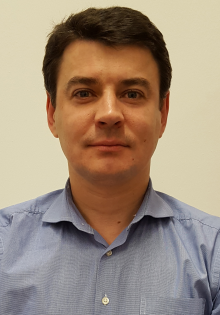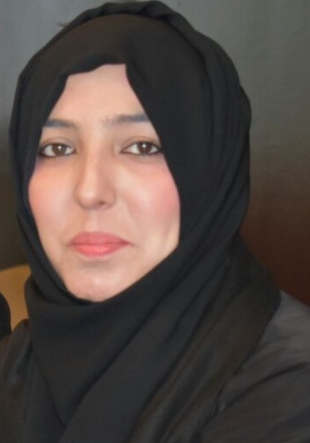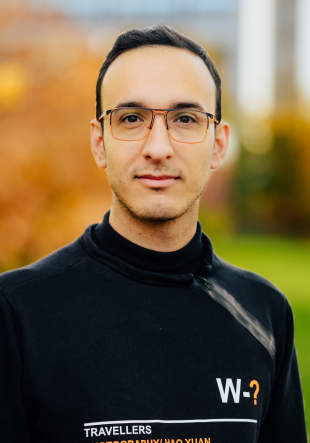Modeling and Simulation (L.048.90102), winter semester 2024/2025
Usually taken as compulsory course by students of the Optoelectronics & Photonics Master and Electrical System Engineering Master (ESE) programs at the University of Paderborn in their first or second semester. The language of instruction is English.
Sign up to the lecture and to the exam (seperately) on PAUL.
This winter semester, the course will be held in presence.
All further course information is given here and on the PANDA learning platform (if you signed up in PAUL you should have access, if not, please contact us).
Many numerical algorithms will be implemented in MATLAB programming language, which will be introduced at the beginning of the class in the tutorial sessions. See also some of our videos on Introduction to Matlab/Octave in unit L0 on PANDA. However, there will be no introduction into programming in general.
Topics
These topics are covered:
- Introduction to the modeling process (motivation, definitions, standard workflow)
- Number representation in digital computers (integer, fixed-point and floating point numbers and operations on them, precision of numbers)
- Numerical schemes for ordinary differential equations (schemes for initial value and boundary condition problems, stability, optimization)
- Numerical schemes for partial differential equations (finite difference schemes, Fourier approaches, finite element and boundary element methods)
- Simulations of discrete event-driven processes (graphs, shortest path problem, travelling salesman problem, task scheduling)
As prerequisites we expect Bachelor level knowledge in mathematics (differential equations, Fourier transformations) and basic programming abilities. Many numerical algorithms will be implemented in MATLAB programming language, which will be introduced at the beginning of the class in the lecture and exercise, however this will be no introduction into programming in general.
Lectures
Tuesdays 9:15-10:45, room P 6 2.03
Lecturer: Dr. Viktor Myroshnychenko
A Tablet-PC will be used to do the lecture. The presentation slides and handwritten notes are uploaded to PANDA.
Homework exercises (problem sheets)
Problem sheets as PDF are published weekly in PANDA . Solutions should be submitted for correction after one week via PANDA. The problems sheets are then discussed in the exercise classes.
Some problems require implementations in the MATLAB programming language. You can either use the MATLAB (commercial) or a free alternative like Octave (recommended for Linux and OS X) or FreeMat (recommendation for Windows).
Exercise groups (Tutorials)
Tuesdays 11:00-12:45, room P7.2.02.1
Wednesdays 9:15-10:45, room P7.2.02.1
Tutors: Dr. Viktor Myroshnychenko, Mrs. Shafaq Ejaz
The Problems Sheets and other topics, e.g. questions from the forum, are discussed in the exercise classes by the teachers. You can either use one of the 22 PCs (account required, see below) or bring your own Notebook with MATLAB or a MATLAB compatible software installed (see above) and follow the tutors' instructions.
Computer pool rooms
The Electrical Engineering department operates two computer pools in room P7.2.02.1 and room P1.6.12.4, see detailed information in German. Room P7.2.02.1 is used for the exercise groups.
Under normal conditions, with an access card available from the IRB (rooms E0.129 and E1.106) you can enter the poolrooms anytime unless they are reserved for teaching.
To use the computers in the pool rooms with your IMT account, you have to request access in the IMT User Administration interface. Open Internet browser, go to IMT service portal, enter your IMT name/password. There click on "English - United States" on the lower left corner. In the "Selfcare-Portal der Benutzerverwaltung" box on the right, click on the "Weitere Dienste einsehen und beantragen" (last option in the list). Scroll down to the section "Angebot der Fakultäten", in particular, line "IT-Dienste für Informatiker", click on the "Options" button (if it is currently "nicht verwendet"), and finally click on "Request" in the opened menu list. Next, scroll down to the section "Zentrum für Informations- und Medientechnologien (IMT)", in particular, line "Netzwerkspeicher", click on the "Options" button there (if it is currently "nicht verwendet"), and finally click on the "Request" button in the opened menu list. If everything goes well, you will see “aktiv” in the "Status" columns of the respective services. If you are a regular ESE student it should be automatically activated. Otherwise, if the above steps do not help, please go to the IRB (room E0.129) to activate it.
The computers run on Linux (see web for introductions if you are not familiar) and have Matlab installed (classroom license with small limitations). Initially, the Linux user interface might be in German, which can be changed to English before login, see menu options in the top-right corner.
Exam
An overall of 6% bonus points towards the exam can be earned for solving and submitting homework exercises and forum activity. They are primarily intended to provide initial motivation for you to get active. They can only be credited to passed exams.
The next written exam is scheduled for ... (date & time and room will be announced). It will be on paper (i.e. no computer required, programming tasks will be done via gap texts or few lines). Except for pens and a simple ruler no other tools are allowed (e.g. no calculators, no mobile phones). To take the exam, you have to sign up in PAUL on time.
Communication
Lecture notes, problem sheets, current information and circular mails are published via PANDA. There, forums for asking questions about the course unit and for communication between students will be also created. These will be answered by us and your fellow students.
Everyone signed up in PAUL and having a PANDA account should be in the PANDA group already. To be added to the group, please send us your name and IMT login name.
We are always thankful for suggestions regarding the course.
Literature
There is no book that closely follows the lecture. If you already own a book on numerics, especially numerical physics/engineering, this is a good start.
Also, we can recommend the book "Modeling and Simulation" by H.-J. Bungartz, S. Zimmer, M. Buchholz, and D. Pflüger for further reading as it covers many topics of the lecture in more depth. On the campus network the English and German version can be downloaded for free (via an agreement of the University library with the publisher Springer).
Additional literature will be mentioned in the lectures and exercises.



